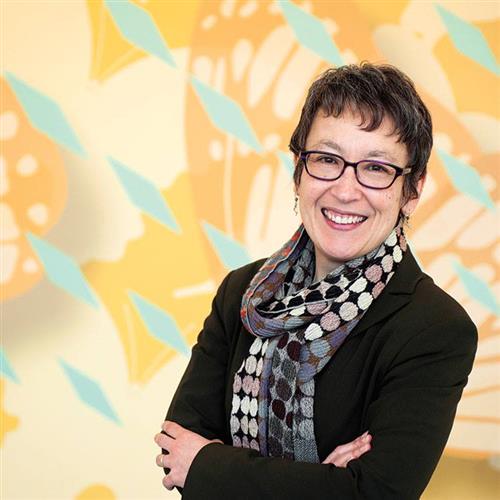Administrative Services
Page Navigation
- Administrative Services
- Evaluation, Grants & Data
- Finance & Business Operations
- Human Resources
- Marketing & Strategic Communication
- Project SEEKS SES
- Technology Services
- Safety & Security: Services & Support
- Special Education Administrative Support
- Diversity, Equity & Inclusion
- BridgeUP
Project SEEKS SES and the Pittsburgh Study partner together
Posted by Jeremy Tepper on 3/16/2023

When Liz Miller learned about Project SEEKS SES, she knew that she’d be an apt partner for the work.
Miller wears a number of hats, but has made waves within the mental health and education realm for her work with the Pittsburgh Study, a “longitudinal, community-partnered study focused on child and adolescent thriving and racial equity.” The study — which began in 2018 — aims to study 20,000-25,000 children over the next two decades.
“The Pittsburgh Study is this really audacious vision that every child and young person in our region should be healthy, thriving and achieving their academic goals. We do this by bringing community members and professional scientists together,” said Miller. “We’re really bringing in community members to do the science together. We’re really focusing on dismantling systemic inequities and adversities related to poverty and racism.”
As part of the Pittsburgh Study, Miller hopes to use her data to inform school district and community initiatives. That’s where Miller comes into play in Project SEEKS SES, an AIU and ACHD partnership that looks to address social and emotional health in ten school districts, while also building a pipeline of professionals to help address the workforce crisis in related fields.
Miller will partner with Project SEEKS SES by implementing the Healthy Allegheny Teen Survey (HATS) in the ten school districts in the grant, along with 13 Pittsburgh Public high schools. HATS is an anonymous survey that asks high school students to answer questions related to exercise, eating habits, relationships, violence, substance use, sexual health, social supports and mentorship and connectedness to parents and school, among other things.
Miller has initiated this survey a number of times. In 2018, Miller administered the survey in 13 Pittsburgh Public high schools. She got a 91 percent response rate, entering 4,450 surveys into the final sample. This time around, Miller hopes for a similar or greater response. The data will then help inform Project SEEKS SES, giving the AIU and the participating school districts data to glean strengths and weaknesses. Miller’s plan is to administer this survey every year, which will help Project SEEKS SES identify trends and judge the success of its initiatives.
“It’s focused on high school youth and really intended to guide allocation of resources and programs,” Miller said. “It’s very much tied to the goals of Project SEEKS. By having the data collected in the spring — as we really launch much more in earnest in academic year 23-24 — we’ll actually have some benchmark data.”
Miller has long talked about the adolescent mental health crisis, identifying it as a burgeoning issue two decades ago. Through her relationship with the ACHD, Project SEEKS SES came on her radar in its early stages, when the county was starting to think about writing for the grant.
Miller is happy to see an initiative like Project SEEKS SES moving forward in the greater Pittsburgh area. She’s hoping it’s the start of a number of similar initiatives, noting social and emotional health support as especially important in the aftermath of the COVID-19 pandemic.
“What the pandemic did was multiple things. One, it created additional stressors for children, youth and families who were already struggling. And two, across the board, the pandemic disrupted opportunities for social and emotional development,” Miller said.
“Especially for young students, it was disruptive to social and emotional development, disruptive to communication skills, disruptive to relationship skills and really disruptive in terms of the social support that young people need to thrive.”
The goals of Project SEEKS SES and the Pittsburgh Study are quite similar, Miller said, as they’re both rooted in the Whole School, Whole Community, Whole Child (WSCC) model, which is the CDC's framework for addressing health in schools. The WSCC model is “student-centered and emphasizes the role of the community in supporting the school, the connections between health and academic achievement and the importance of evidence-based school policies and practices,” according to the CDC.
“There’s a strong foundation of evidence that when you actually do this work — collaborating across sectors, doing multi-disciplinary work and having community and academic partnerships — there are now decades of research showing that you get better academic outcomes,” Miller said.
To that end, Miller lauded the early work of Project SEEKS SES, headed by its project coordinator, Shannon Fagan. With Fagan’s skill for collaboration and community partners like the Pittsburgh Study, Miller is confident in the direction of the project.
“Shannon is doing a remarkable job of identifying what’s already working well in the school districts and how to amplify that, and how to better coordinate across the many, many programs that are coming into school districts all at once,” Miller said.
“We’re all in it together, and when much of the focus is directed towards coordinating all of the existing assets within a community, you can actually make some pretty amazing magic happen.”


You are commenting as Anonymous